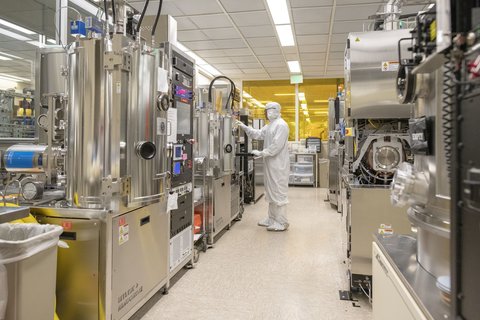The Role of Chemical Engineering in Modern Industries
Table of Contents
ToggleIn the modern industrial landscape, chemical engineering plays a crucial role, merging principles of chemistry, physics, biology, and mathematics to efficiently use, produce, design, transport, and transform energy and materials. This 1000-word article delves into the diverse and significant contributions of chemical engineering to various industries, highlighting its impact on innovation, sustainability, and economic growth.
Introduction
Chemical engineering, often described as a universal engineering discipline, stands at the forefront of technological advancement and innovation. Its principles are fundamental in transforming raw materials into valuable products, addressing environmental challenges, and improving manufacturing processes. This field’s influence extends across a myriad of industries, from pharmaceuticals to energy, making it a cornerstone of modern industrial operations.
The Essence of Chemical Engineering
Definition and Scope
Chemical engineering is the branch of engineering that deals with chemical production and the manufacture of products through chemical processes. This includes designing equipment, systems, and processes for refining raw materials and for mixing, compounding, and processing chemicals.
Interdisciplinary Nature
Chemical engineering is inherently interdisciplinary, integrating knowledge from chemistry, physics, biology, and mathematics to solve problems and create new processes and products.
Key Contributions of Chemical Engineering
Process Engineering and Optimization
Chemical engineers are pivotal in designing and optimizing industrial processes. They ensure that plants operate efficiently, safely, and economically, optimizing the use of resources and minimizing waste.
Material Development
In the field of material science, chemical engineers develop new materials with enhanced properties for various applications, including high-performance composites, nanomaterials, and biocompatible materials.
Impact on Various Industries
Pharmaceutical Industry
In pharmaceuticals, chemical engineers design processes for the production of drugs. They are involved in formulating and manufacturing tablets, developing controlled release systems, and ensuring quality and compliance with health regulations.
Energy Sector
Chemical engineers play a significant role in the energy sector, from traditional oil and gas to renewable energy sources. They develop and optimize processes for the extraction, refinement, and transformation of energy resources.
Food and Beverage Industry
In food processing, chemical engineers design equipment and processes for large-scale food manufacturing. They are involved in improving food quality, safety, and shelf life.
Environmental Engineering
Chemical engineers are at the forefront of environmental engineering, developing technologies for waste treatment, pollution control, and sustainable chemical processes.
Advancements in Chemical Engineering
Process Simulation and Control
Advancements in computer technology have revolutionized process simulation and control. Chemical engineers use these tools to model and optimize processes, reducing costs and enhancing efficiency.
Biotechnology and Bioengineering
The integration of biotechnology in chemical engineering has led to significant developments in biofuels, bioplastics, and pharmaceuticals. Chemical engineers are crucial in developing processes for the production of these biologically derived materials.
Nanotechnology
In the field of nanotechnology, chemical engineers are developing processes to manufacture nanoscale materials, which have applications in electronics, medicine, and materials science.
Sustainability and Chemical Engineering
Green Chemistry
Sustainability is a key focus in chemical engineering. The principles of green chemistry are applied to design processes that reduce or eliminate the generation of hazardous substances.
Energy Efficiency
Chemical engineers work on enhancing energy efficiency in industrial processes, contributing to reduced energy consumption and lower greenhouse gas emissions.
Water Conservation and Treatment
In water-stressed regions, chemical engineers develop technologies for water conservation, recycling, and treatment, ensuring sustainable water management in industrial processes.
Chemical Engineering in Research and Development
Innovative Solutions
Chemical engineers in R&D departments drive innovation, developing new processes and products that meet market needs and address societal challenges.
Collaboration with Other Disciplines
Their work often involves collaboration with researchers in other disciplines, such as biology, physics, and materials science, to develop interdisciplinary solutions.
Education and Training in Chemical Engineering
Academic Programs
Universities offer robust chemical engineering programs that combine theoretical knowledge with practical application, preparing graduates for diverse roles in various industries.
Continuing Education and Specialization
Ongoing education and specialization are important for chemical engineers to keep up with technological advancements and evolving industry needs.
Challenges and Future Directions
Adapting to a Changing Industrial Landscape
One of the key challenges for chemical engineers is adapting to the rapidly changing industrial landscape, driven by digitalization, environmental concerns, and evolving consumer demands.
Focus on Renewable Resources
Future trends in chemical engineering include a greater focus on renewable resources and sustainable practices, aligning with global sustainability goals.
Conclusion
The role of chemical engineering in modern industries is expansive and dynamic. Chemical engineers’ expertise in process design, material development, and optimization is vital to industrial operations and technological advancement. Their contributions not only drive economic growth but also address critical environmental and sustainability challenges. As industries continue to evolve, the role of chemical engineering will undoubtedly expand, requiring continuous innovation and adaptation. The future of this field is intertwined with the broader goals of achieving sustainable industrial practices and meeting the danatoto world’s growing needs











